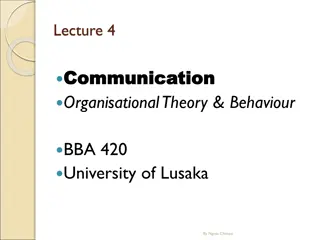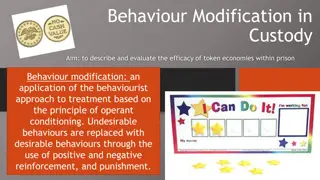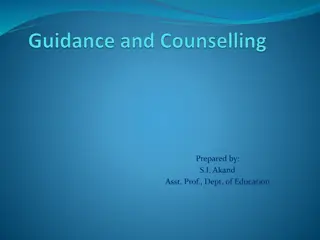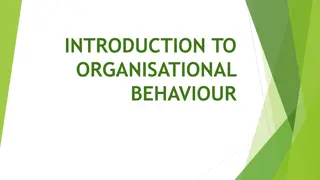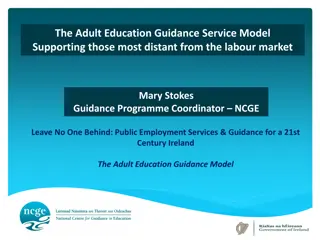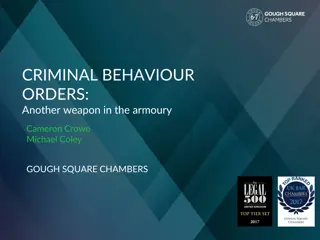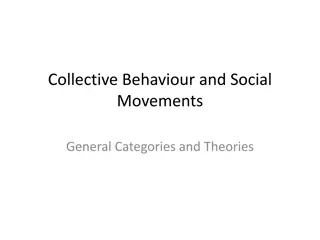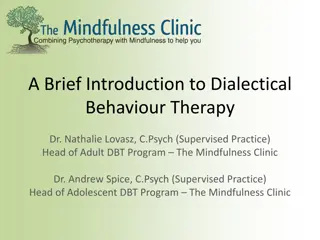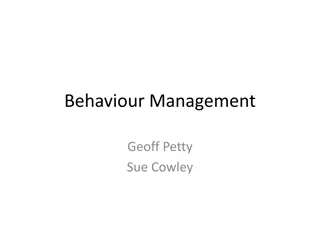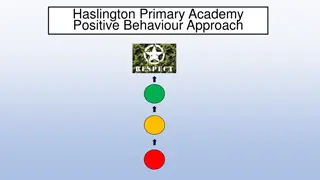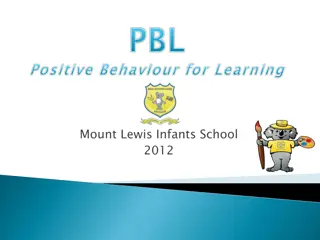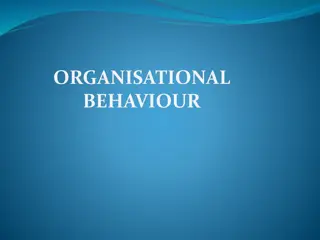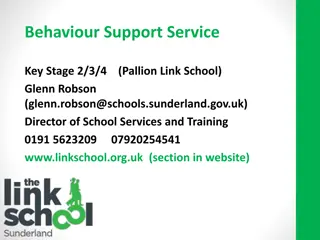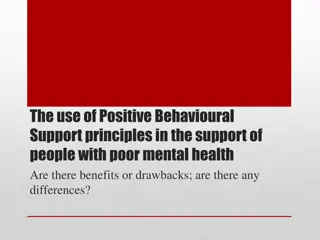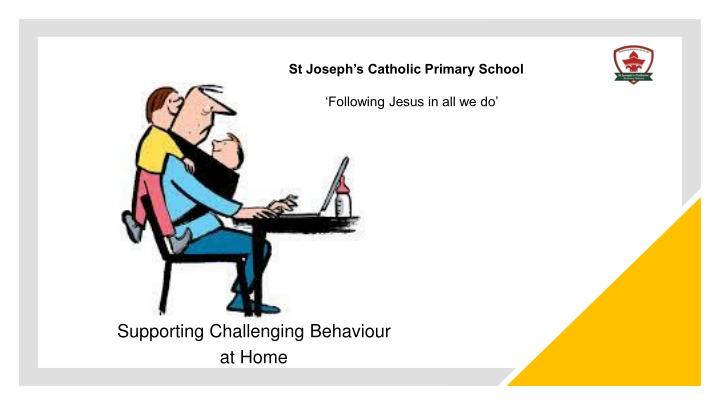
Effective Strategies for Supporting Challenging Behavior at Home
Discover practical tips and advice for handling challenging behavior at home, including self-care, environmental considerations, understanding the root of behavior changes, record-keeping, and strategies to promote positive behavior. Take proactive steps to create a supportive environment and encourage positive interactions with your child.
Uploaded on | 2 Views
Download Presentation

Please find below an Image/Link to download the presentation.
The content on the website is provided AS IS for your information and personal use only. It may not be sold, licensed, or shared on other websites without obtaining consent from the author. If you encounter any issues during the download, it is possible that the publisher has removed the file from their server.
You are allowed to download the files provided on this website for personal or commercial use, subject to the condition that they are used lawfully. All files are the property of their respective owners.
The content on the website is provided AS IS for your information and personal use only. It may not be sold, licensed, or shared on other websites without obtaining consent from the author.
E N D
Presentation Transcript
St Josephs Catholic Primary School Following Jesus in all we do Supporting Challenging Behaviour at Home
Many of our pupils find changes to their routines very difficult and we understand the impact and challenges you face being at home, dealing with challenging behaviour. Hopefully this may offer some advice and support.
The Most Important Message is: Look after yourself first! Think about: What can I do if happens? Is there someone else to deal with the incident? Can you talk to someone about the incident after? Can you have thinking time after the incident? Plan breaks for yourself and take them even if the situation appears calm.
Consider the environment of your home. The environment of your home may be having an impact on incidents happening. Try thinking about Is it noisier than usual? Is it hotter than usual? Are there more people than usual? Can I control or reduce the triggers by changing the environment?
Try and work out what the change in behaviour is indicating, so you can have a better chance of meeting their need. Do they want positive attention? Do they want something tangible like a drink, food or just some space? Do they try to avoid doing something? Then offer an alternative.
Try keeping a record of what happened before, during and after the incident. This may help you work out why and when they have happened and ideas of how to make changes to reduce the risk of it happening again. Make sure that any new routines are planned and explained in advance.
Strategies to help prompt positive behaviour Provide Choice where possible Praise and reward positive behaviour. Keep language simple Use positive language Distract before behaviour escalates. Involve them in everyday life activities. (washing up making a cup of tea, baking) Use body gestures Set rules and reminded them Set regular routines at home Allow time for everyone to calm down Stay calm during the incident
Support and Guidance St Joseph s Behaviour Policy https://stjosephsworcester.co.uk/parents/policies The Challenging Behaviour Foundation https://www.challengingbehaviour.org.uk/supporting-you/for-families/family-support- service.html Family Lives https://www.familylives.org.uk/advice/primary/behaviour/challenging-behaviour/
School Behaviour Team Behaviour Team Lead: Pastoral/PHSE Lead Mrs A Masters Deputy Leaders Members Assistant Head Teacher/SENCO: Mrs Joanne McDonagh Nurture Teacher: Mrs Barker Councillor/Family Support Worker: Mrs Tracy Eaborn KS1: Mrs S Atkinson KS2: Miss L Malpass Mr W Bowring Lossock Mrs A Hackley
St Josephs Catholic Primary School Chedworth Drive, Warndon, Worcester WR4 9PG 01905 452772 Office@st-josephs-pri.worcs.sch.uk


